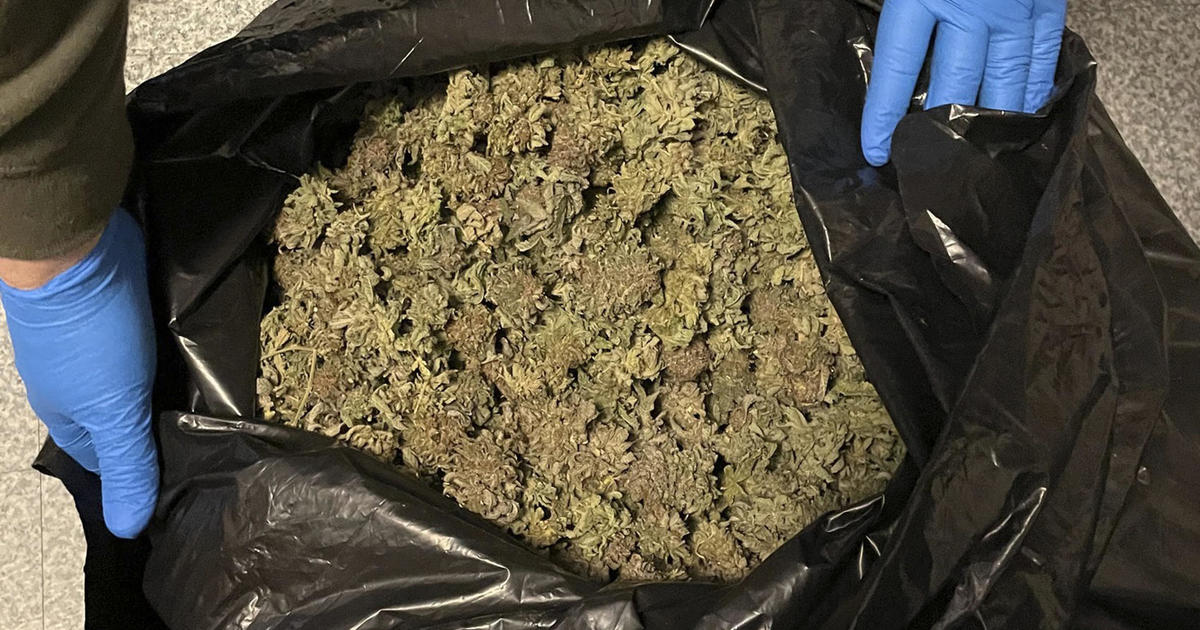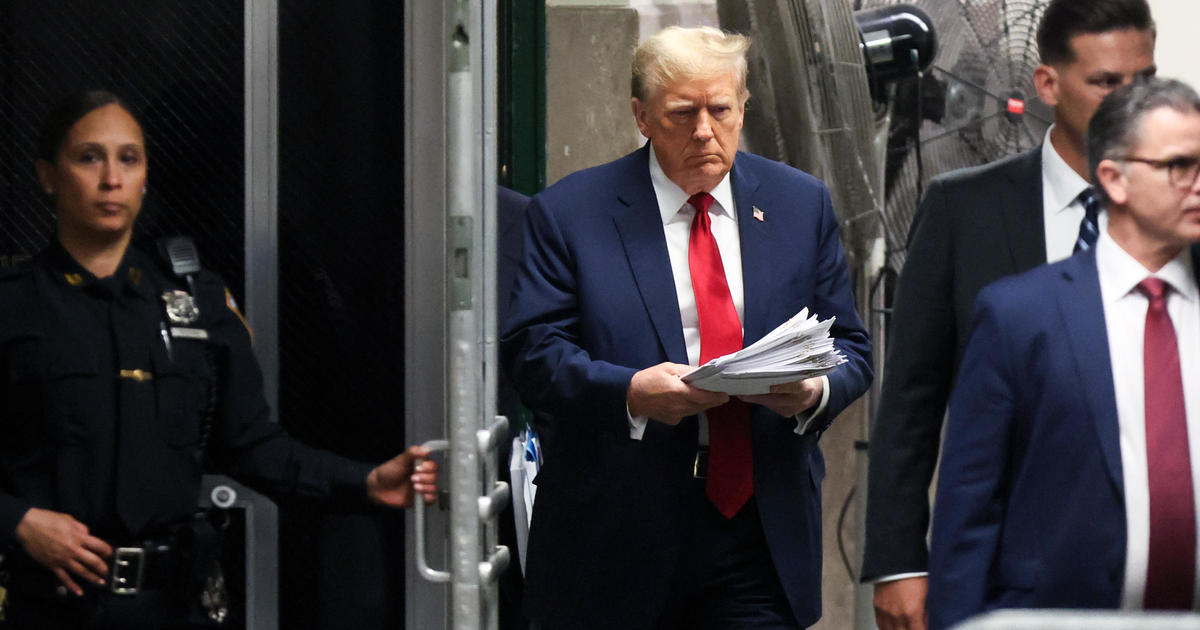Patients may have permanent access to some addiction treatments through telehealth
Washington – Patients may soon be able to obtain addiction treatments and medications through telehealth visits — without having to see a doctor in person.
The Biden administration unveiled new regulations aimed at increasing patient access to certain medications and addiction treatments, and the proposed rules from the Drug Enforcement Administration (DEA), announced Friday, make permanent certain Trump-era allowances for medical providers to prescribe drugs through telehealth that were established at the start of the COVID-19 pandemic. At the same time, the administration is re-implementing restrictions on other medicines that are more addictive.
The move would permit medical providers on a permanent basis to prescribe non-narcotic drugs in one 30-day supply after a single telehealth visit. This is likely to go into effect days before Mr. Biden plans to end the public health emergency on May 11. The rules also carve out an exception for buprenorphine, a drug used to treat opioid addiction.
In both of these instances, after first receiving a 30-day supply of the drug remotely, patients must then visit their doctor to receive these medications — Ambien, Valium, Xanax and Lyrica, among others — classified by the DEA as Schedule III, IV, and V controlled substances.
DEA officials told CBS News the new regulations prioritized continuity of care for patients and ongoing substance abuse disorder treatments, making sure those who acclimated to the pandemic-era rules could continue their care with their established medical providers.
The government's proposed changes will not impact telemedicine consultations by a doctor or medical practitioner that previously examined a patient in-person or virtual prescribing of medications outside of the DEA's list of controlled substances. These non-controlled substances include acne creams, blood pressure and cholesterol medicine, antibiotics, birth control, and insulin.
"The balance between patient safety and access to care continue to be at the forefront of the DEA's proposed changes," said Dr. Shabana Khan, Chair of the Committee on Telepsychiatry at the American Psychiatric Association. "If finalized, the proposed rule will increase the ability of a prescribing practitioner of controlled medications, through coordinated care partnerships, to treat a patient through telemedicine technologies without requiring an in-person examination with the prescribing practitioner, while maintaining the safeguards to legitimate medical services."
Khan said the association will continue to advocate for increased flexibilities and exemptions to be the proposed prescription requirements, especially in communities where barriers to in-personal mental health care exist.
The DEA's new plan does, however, restrict providers from prescribing narcotics, known as Schedule II substances, because they can be highly addictive and lead to long-term health complications.
Since March 2020, after the Health and Human Services secretary declared a public health emergency, DEA-registered medical providers were allowed to issue prescriptions for all Schedule II through V drugs to telehealth patients, or "patients for whom they have not conducted an in-person medical evaluation."
These permissions included numerous classifications of pharmaceuticals, from more addictive narcotics like oxycodone, to less habit-forming mental health medicines like Fluoxetine and buprenorphine.
Under the new proposed regulations, a patient's ability to get a narcotic without first physically visiting their doctor — which went unrestricted during the COVID-19 emergency — would be eliminated and return to pre-pandemic policies. DEA officials said such safeguards were put in place to protect the public.
When the COVID-era expansions were first enacted, medical providers were required to ensure the prescribed drugs served a "legitimate medical purpose," and the consultation with the patient was performed using a video communications system.
As COVID-19 hit the U.S., public health professionals were already battling another epidemic – the drug crisis. The emergency provisions proved revolutionary for those battling substance-abuse disorders.
Those temporary and emergent regulations — aimed at allowing patients to get the medicines they need without risking exposure to the coronavirus at the doctor's office — were celebrated by patient care advocates who have since come to worry about how the end of the nationwide health emergency might disrupt patients' medical treatment.
The pandemic-born surge in remote prescribing and at-home use of drugs has sparked a debate among the public health community, with government regulators balancing the availability of substances with patient safety.
Yet, Friday's regulatory changes will be a boon to those managing substance abuse disorder, making treatment both accessible and affordable, particularly for Americans in remote or rural areas of the U.S. with limited access to in-person physician visits.
In recent months, congressional pressure mounted to develop a plan for continuity of care, ensuring patients who had the ability to obtain and refill prescription drugs via telehealth would go undisturbed. Justice Department officials said late last year they were working within the administration to finalize a strategy.
"DEA is committed to ensuring that all Americans can access needed medications," said DEA Administrator Anne Milgram in a statement. "The permanent expansion of telemedicine flexibilities would continue greater access to care for patients across the country, while ensuring the safety of patients."
Friday night's announcement amounts to a middle ground for first-time patients and their providers, affording them the freedom to start a month of treatment via telehealth.
It comes just days after Food and Drug Administration head, Dr. Robert Califf, criticized what he characterized as the "completely crazy" over-prescription of certain drugs like Adderall — a Schedule II drug.
"So as long as that's happening, it's very hard to say we're not — we're just going to open the floodgates on this," Califf said during a meeting of the National Institutes of Health's HEAL Initiative. "So you all need to be doing research on…what are the appropriate ways to do this? I personally had to defend telehealth in our program in Dayton before I came to FDA, when the state medical board tried to shut down the opportunity to give it. So I'm all for it, but we got to define the parameters better."
The public now has 30 days to comment on the new flexibilities before the rules are finalized. According to DEA officials, the proposed regulations will take effect after a six-month grace period following the end of the public health emergency — which is slated for May 11 — for patients to ensure their care is maintained.
Officials said they are soliciting comments from the public on various safeguard and flexibilities.
— Alexander Tin contributed reporting.



